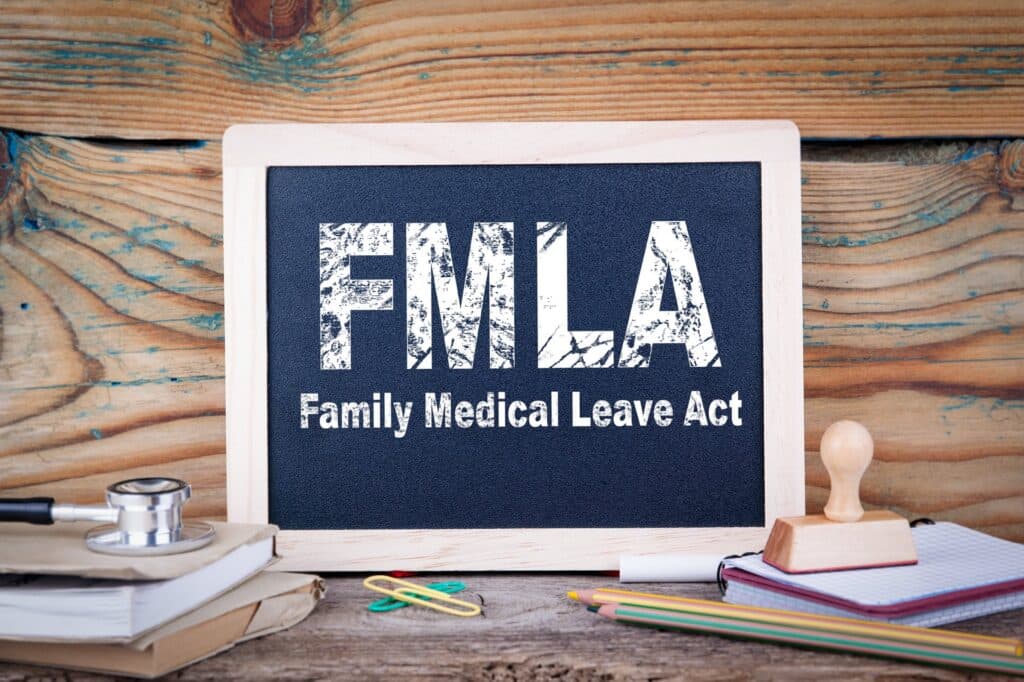While all forms of prohibited discrimination carried out by an employer can cause emotional, psychological, and physical distress, unlawful pregnancy discrimination is particularly egregious because at a time in an employee’s life when the employee is elated over their pregnancy and the prospect of growing their family, their happiness is met with discrimination, harassment, and adverse actions taken by their superiors in the workplace. Fortunately, as discussed below, various Federal and State laws prohibit pregnancy discrimination.
The Pregnant Workers Fairness Act
It’s no surprise that pregnancy triggers a wide range of symptoms that can impact someone’s ability to perform their job duties comfortably. Morning sickness, fatigue, reduced mobility, and other pregnancy-related symptoms can make it hard for an employee to enjoy working in the same capacity they did before they became pregnant. Although federal protections, including the Americans with Disabilities Act, were enacted to protect and accommodate workers with disabilities, many employees and advocates argued that these legal protections were too restrictive to address the complex needs of pregnancy.
The Pregnant Workers Fairness Act (“PWFA”) is a federal law that went into effect on June 27, 2023 and amended Title VII of the Civil Rights Act of 1964. It applies to private employers with 15 or more employees, state and local government employers with fifteen (15) or more employees, unions, employment agencies, and the Federal Government. Generally speaking, it requires employers to provide reasonable accommodations to a worker’s known limitations related to pregnancy, childbirth, or related medical conditions, unless the accommodation will cause the employer an undue hardship. The PWFA applies only to reasonable accommodations—it does not address or enforce issues related to workplace discrimination based on pregnancy or childbirth (but the PDA discussed below does). The PWFA specifically prohibits employers from engaging in any of the following
- Failing to make a reasonable accommodation for the known limitations of an employee or applicant, unless the accommodation would cause an undue hardship;
- Requiring an employee to accept an accommodation other than a reasonable accommodation arrived at through the interactive process;
- Denying a job or other employment opportunities to a qualified employee or applicant based on the person’s need for a reasonable accommodation;
- Requiring an employee to take leave if another reasonable accommodation can be provided that would let the employee keep working;
- Punishing or retaliating against an employee or applicant for requesting or using a reasonable accommodation for a known limitation under the PWFA, reporting or opposing unlawful discrimination under the PWFA, or participating in a PWFA proceeding (such as an investigation); and
- Coercing individuals who are exercising their rights or helping others exercise their rights under the PWFA.
A “reasonable accommodation” under the PWFA is a change in the work environment or the way things are usually done at work. The United States Equal Employment Opportunity Commission (“EEOC”), which is the Federal Agency authorized to enforce the PWFA, has provided the following as examples of reasonable accommodations under the PWFA:
- Additional, longer, or more flexible breaks to drink water, eat, rest, or use the restroom;
- Changing food or drink policies to allow for a water bottle or food;
- Changing equipment, devices, or workstations, such as providing a stool to sit on, or a way to do work while standing;
- Changing a uniform or dress code or providing safety equipment that fits;
- Changing a work schedule, such as having shorter hours, part-time work, or a later start time;
- Telework;
- Temporary reassignment;
- Temporary suspension of one or more essential functions of a job;
- Leave for health care appointments;
- Light duty or help with lifting or other manual labor; or
- Leave to recover from childbirth or other medical conditions related to pregnancy or childbirth.
Because the PWFA requires employers to provide reasonable accommodations for the “known” limitations of an employee or applicant, employees should tell their employer that they have a physical or mental condition related to, arising out of, or affected by pregnancy, childbirth, or a related medical condition and that they need an adjustment or change in their working conditions due to the limitation. For example, the worker can say:
- “I’m having trouble getting to work at my scheduled starting time because of morning sickness.”
- “I need more bathroom breaks because of my pregnancy.”
- “I need time off from work to attend a medical appointment because of my pregnancy.”
Once the employer knows the limitation, it should engage in the “interactive process” with the employee or applicant. The “interactive process” means simply that the employer and employee or applicant communicate, whether by talking or some other way, about the known limitation and the adjustment or change needed at work. The employer should respond promptly to accommodation requests. If it does not cause an undue hardship to the employer’s business, the employer generally has to provide a reasonable accommodation—either what the employee or applicant requests or another effective accommodation.
The Pregnancy Discrimination Act of 1978
The Pregnancy Discrimination Act of 1978 (“PDA”) is a Federal law also amending Title VII of the Civil Rights Act of 1964 and it expanded Title VII’s prohibition against sex discrimination to include discrimination on the basis of pregnancy, childbirth, or related medical conditions. This means that employers subject to the PDA are prohibited from discriminating against employees and job applicants based on pregnancy, including, but not limited through adverse actions such as demotion, firing, denial of employment, harassment, etc. The law applies to the same employers that the PWFA applies to.
The Rhode Island Fair Employment Practices Act
Rhode Island state law also offers protections to pregnant applicants and employees. Rhode Island’s Fair Employment Practices Act (“FEPA”) mirrors the PDA by prohibiting workplace discrimination on the basis of pregnancy, childbirth, or related medical conditions. Similarly, FEPA mirrors the PWFA by requiring employers to reasonably accommodate an employee’s or applicant’s condition related to pregnancy, childbirth, or a related medical condition, unless the employer can demonstrate that the accommodation would pose an undue hardship. FEPA applies to employers in Rhode Island with four (4) or more employees. Some of FEPA’s prohibitions include:
1) Refusing to reasonably accommodate an employee’s or prospective employee’s condition related to pregnancy, childbirth, or a related medical condition, including, but not limited to, the need to express breast milk for a nursing child, if she so requests, unless the employer can demonstrate that the accommodation would pose an undue hardship on the employer’s program, enterprise, or business;
(2) Requiring an employee to take leave if another reasonable accommodation can be provided to an employee’s condition related to the pregnancy, childbirth, or a related medical condition; or
(3) Denying employment opportunities to an employee or prospective employee, if such denial is based on the refusal of the employer to reasonably accommodate an employee’s or prospective employee’s condition related to pregnancy, childbirth, or a related medical condition.
Reasonable accommodations under FEPA include, but are not limited to, more frequent or longer breaks, time off to recover from childbirth, acquisition or modification of equipment, seating, temporary transfer to a less strenuous or hazardous position, job restructuring, light duty, break time and private non-bathroom space for expressing breast milk, assistance with manual labor, or modified work schedules.
FEPA also includes a unique notice requirement requiring employers to notify employees of their right to be free from discrimination in relation to pregnancy, childbirth, and related conditions, including the right to reasonable accommodations for conditions related to pregnancy, childbirth, or related conditions. This notice must be provided to new employees at the commencement of employment and to any employee within ten (10) days of the employee notifying her employer of her pregnancy.
Finally, the PWFA, PDA, and FEPA offer protections to employees who complain about their employer’s violation of these laws and they prohibit employers from taking any adverse action against employees over making these complaints.
Remedies for violations of the PWFA, PDA, and/or FEPA include, but are not limited to, hiring, reinstatement, back pay, front pay, compensatory damages, punitive damages, attorneys’ fees, expert fees, and costs.
If you are a job applicant or an employee who believes that an employer has discriminated against you because of your pregnancy, has refused to reasonably accommodate a condition relating to your pregnancy, or has otherwise violated your rights under the PWFA, PDA, and/or FEPA, we invite you to contact our Warwick, Rhode Island office today at (401) 739-9690 to get started with a highly qualified and experienced employment law attorney.





